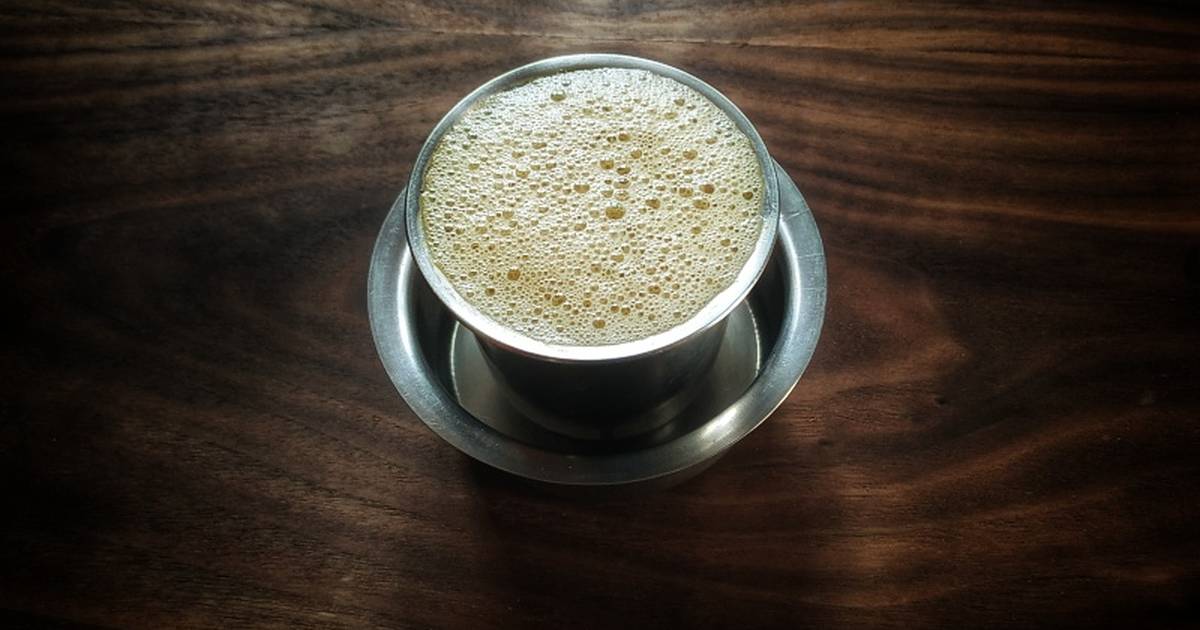This time to compile a complete guide about Indian filter coffee. Everything you need to know about Indian coffee filter. With its history, chicory additives, brewing techniques and preparations, and how it differs from Western refined coffee, this is the only complete guide you will ever need to understand this centuries-old drink.
KAAPI – What’s In a Name?
Most Indian filter coffee is grown in the southern Indian states of Karnataka, Tamil Nadu, Kerala and Andhra Pradesh. Although each of these provinces has its own culture and language, the name KAAPI means coffee. KAAPI is probably accepted as the phonetic representation of the word coffee in South African languages, such as “Copy” in Southeast Asian countries or “Kaffee” in German.
History of Indian Filter Coffee in India
Refined Indian coffee is also known as refined coffee, high caffeine coffee, Mysore coffee or Kumbakonam coffee, and was a staple food in South Indian homes long before the latte and mocha coffee chain became fashionable in urban areas. After the discovery of coffee and the introduction of coffee by European countries, in the 17th century it quickly became a commodity. At the time, the Indian subcontinent was occupied by the British and French armies, who established coffee plantations in the country’s most famous areas.
What is Chicory And Its Role in The Indian Filter Coffee?
Chicory is a plant of the dandelion family. Chicory root is what is added to coffee. It is rumored that in the 17th century, when coffee became scarce, the French and Germans began mixing chicory with coffee. Some believe that chicory is added because of its medicinal properties and that its use in coffee reduces caffeine intake.
Whatever the reason, the new coffee seemed so fragrant and popular that the French continued to mix chicory even after coffee was readily available. The French colonial provinces of India at that time were scattered along the southeast coast of the present capital, Pondicherry, an Indian suburb near the border of Tamil Nadu. Somehow, it has invaded South Indian restaurants.
Even today, New Orleans cafés still use chicory-enriched coffee, which maintains a close connection with its French history. Chicory gives the coffee the wrong taste and dark brown color.
What can You Expect If The Coffee is Labeled Indian Filter Coffee?
Simply put, most coffees brewed by the brewing process are very suitable. Which brings us to grind size!
The brewing method also determines how long the coffee is in contact with water, so certain coffee roasting styles are more suitable for certain brewing techniques.
Indian Coffee Filter In Cafe
Any coffee made using a traditional Indian filter can technically be called an Indian filter coffee. You will need to ask directly whether there is any chicory in the mix or not. Indian refined coffee is also traditionally used as a sugar-based milk coffee. When we offer our mix of criminals we make in Melbourne, we offer something other than milk and sugar of your choice. Although the traditional style of serving (long foam) makes Indian filter coffee taste better with extra sugar. Also, subjective.
India’s Best Coffee Filters Of 2021
A refreshing cup of coffee is all you need to start your day. However, the taste and aroma of refined coffee play an important role. With the variety of options and methods available in the market, it is easy to prepare a delicious cup of filtered coffee from the comfort of your home. From this list of best filtered coffee powders, as well as recipes, you can make a great drink anytime.
1.Bru Green Label Coffee Filter
- Coffee powder with Continental Malgudi Filter Powder
- Seven Beans – Refined coffee powder South Indian Urubage.
- Refined coffee filter Sidapur
- The complete filter powder is Deccan Gold Premium coffee.
We hope this comprehensive guide has really helped you.






